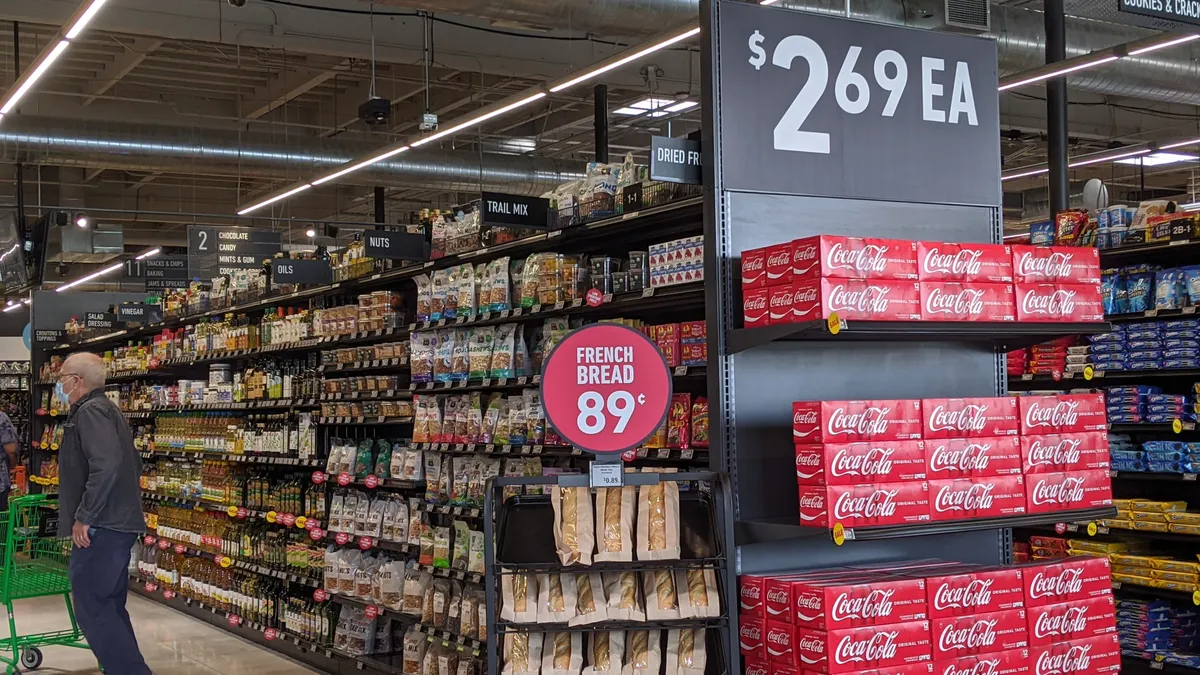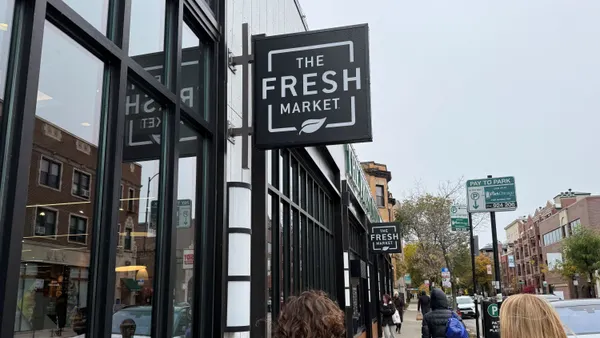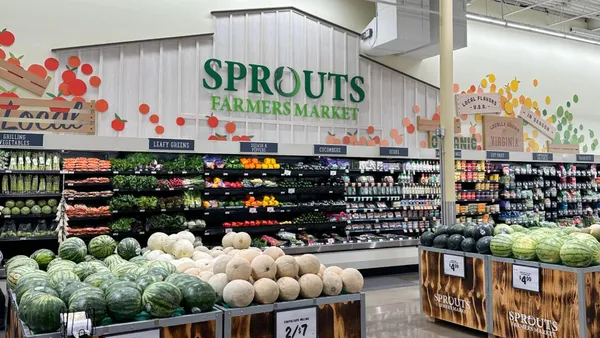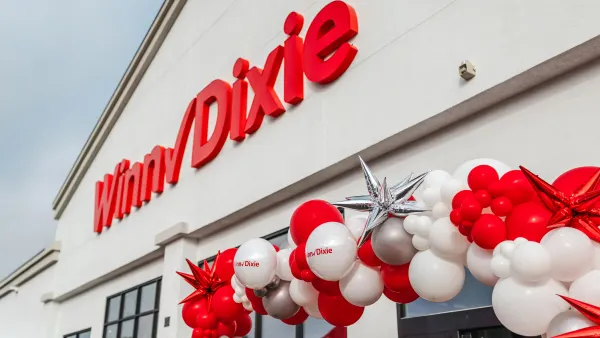Dive Brief:
- The cost of food has overtaken worry about getting sickened by the novel coronavirus as a chief concern for U.S. consumers as they struggle with sagging personal finances, according to the results of Dunnhumby’s latest Consumer Pulse Survey, released Monday.
- Asked which grocery retailer in their area provides the best value, 34% cited Walmart, with Aldi garnering 12% of responses and Kroger receiving the nod from 9% of participants in the research.
- After a prolonged period of stock-up buying, shoppers have refocused on price and value as mask-wearing and social distancing have become ordinary parts of life.
Dive Insight:
The double-whammy of the pandemic-induced recession and higher grocery prices is shining a spotlight on the ability of retailers to hold the line on prices.
Consumers are gravitating to supermarkets where they can find low prices, with 58% of consumers in the Dunnhumby survey reporting that they shop in stores where prices are low and 43% saying they choose the lowest-priced products when filling their baskets. Of the approximately 400 respondents who participated in the research, which was part of a multi-phase global study and conducted between Aug. 28 and Sept. 3, 36% said they use coupons, 34% search online for sales and 21% have increased their purchases of private label items.
Those behaviors are likely being driven by the growing sense among consumers that their economic prospects are dim even as shortages and demand put upward pressure on their grocery bills.
According to the survey, 49% of respondents rated their personal financial circumstances as poor, 68% said the economy is not good, and 91% said they are keeping a close eye on prices when shopping for groceries. Meanwhile, prices for food consumed at home remain elevated over the same period in 2019 even as they edge downward on a month-to-month basis.
Notably, while shoppers generally reported that grocers taking steps to reduce health risks, like social distancing markings, reduced hours and a hiatus on sampling, are necessary, their feelings about whether stores were justified in raising prices on virus-related items were starkly different. About 28% of respondents felt those price hikes were necessary, according to the research.
Meanwhile, Dunnhumby's findings on safety risks posed by the coronavirus are a shift from the last round of the firm’s research, which found that concern about the virus was on the rise. Dunnhumby’s gauge of that concern, which it calls a Worry Index, rose to 29% in July, but had declined to 24% by the time the most recent research was conducted.
The survey also found that U.S. grocery shoppers turned to e-commerce for 30% of their trips. Half of the respondents continue to shop at a smaller number of stores, while 25% said their spending per trip is higher than it was before.











